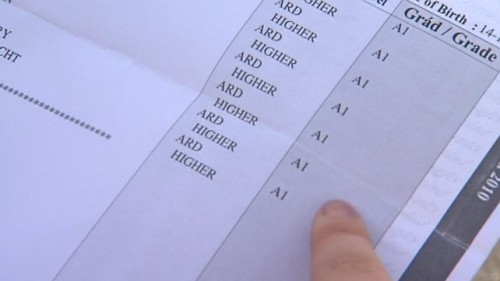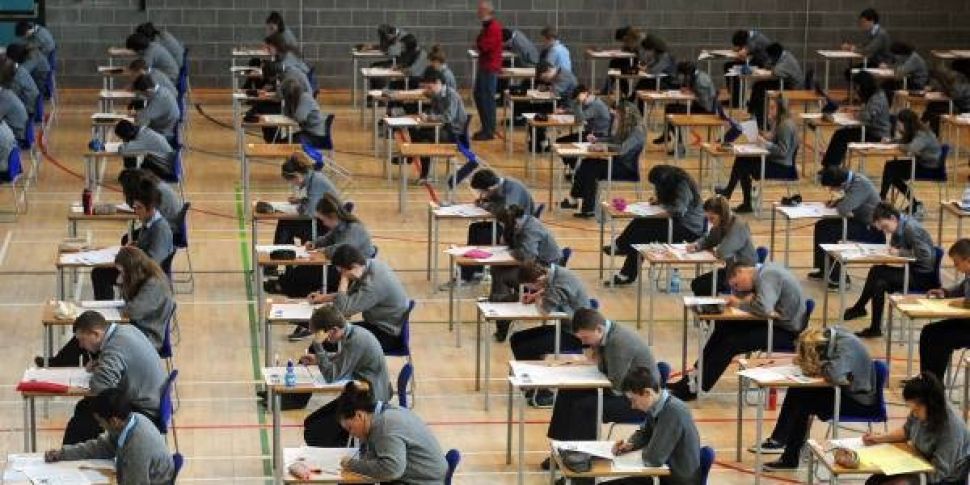DÓD, Baile Átha Cliath.
Cold sweats, mental breakdowns and social isolation. All of these are taken as par for the course in the life of every Leaving Cert student. Since day dot, Ireland’s conservatives and reactionaries have taken the view that stress is an important character-building exercise in the formative years of our young people’s lives. However, in the COVID-19 era, students have been shown an unprecedented level of apathy and disrespect by the state. Since the closure of all schools, colleges and childcare facilities on the 12th March the future of the proverbial “big one” in the Irish education calendar has been in doubt. Today the Department of Education (DoE) has finally come to a decision on the issue and has announced that this Summer’s Leaving Cert exams have been cancelled. With this decision students are now being offered two choices. Students can either:
- Choose to sit the exam at a later (currently unconfirmed) date
Or
- Accept a calculated grade instead.
According to the document produced by the Department of Education the calculated grade for each student is based on two factors:
- A school-based assessment of an overall percentage mark for each student in each subject
- Historical data from the State Examinations Commission i.e. data on past performance of students from each school.
The school-based assessment is first carried out by the student’s teacher in each subject. This includes a range of categories of data such as: classwork, homework, coursework, previous exams (mocks, Summer/Christmas exams), the student’s level of performance for this year compared to previous years, and any other relevant information.
The above might seem fair, even generous, on the surface, however, the nature of the data pool means students are being examined on continuous assessment that they had no idea they were being marked on! Though we understand that continuous assessment is a much more useful and accurate method of academic evaluation, it is important to understand that Irish students are prepared and pressured, beginning in first year, for a sprint rather than a marathon. Students are continually told to base their study plan and strategy around the last hurdle and not to worry too much about background assignments that normally have no bearing on their academic prospects.

Students often have to prioritise homework for one subject over another due to time constraints and there is frequently little communication between teachers (especially around Higher-Level maths). Grades in some subjects can suffer when students are up late studying for upcoming class tests in another. Not to mention students that many working-class students have to work part-time jobs to help their families pay the bills. The fact of the matter is that students have been part of an education system that has never valued consistent or persistent effort, but rather one which is all about what gets done on the day, rewarding a frantic, last-minute work style innately linked to stress. We cannot punish students for playing to the strengths of a system they not only didn’t create, but must live with the consequences of, both for their career and self-esteem.
The planned approach is based entirely around guesstimation of each student’s “calculated grade”, the students in each class are ranked according to metrics they had no opportunity to prepare for, no inclination that the impact of missed class tests due to periods of illness or instability at home could be a defining factor in their final year. All of the subject teachers will meet and review the grades between each class and suggest changes if needed. This arbitrary judgement then passes to the principal who reviews and signs off on the grades before submitting them to the State Examinations Commission (SEC) for the national standardisation phase.
According to the published document the DoE has essentially all but eliminated any trace of human error in guesstimating the biggest exam of every Irish student’s life with a rigid system of checks and balances. However, this grand claim doesn’t hold water. The SEC seems to imply that the meeting of subject teachers to review and confirm grades is a sufficient system to remove biases as teachers can question the grades assigned to other students. The likelihood of any questioning occurring is extremely low given the fact that most subject teachers only have experience teaching their own class and would not feel confident or have enough information to question another teacher’s decision. This issue extends to the final review at the principal level. The principal’s job is to act as administrator for the school, as opposed to knowing exactly what Seánín’s Leaving Cert Metalwork grade should be. The Department of Education has created an incredibly simplistic “solution” to a major issue. In addition to this, if a fuss was kicked up over a number of students, the implications could drag on and create major problems for the school. Why would principals create a headache for themselves? The fact of the matter is that, as things stand, a bad relationship with a single teacher could be enough to stop a student getting their first preference on their CAO form.
The final, and perhaps most nefarious piece of the document is the ominous “Historical data from the State Examinations Commission”. This involves applying existing historical data gathered by the SEC and using it to standardise the student’s grade nationally.
In simple terms this process involves the SEC making the predicted grade fit into historical data ranges they’ve collected for schools. This essentially means that if the student attends a school with a higher number of students going on to attend third level education, their grade will be positively affected. This creates a rigid class wall to denies a student any major agency in their outcome. Conversely, if the student attends a school with a lower number of third level attendees, their grade will be affected negatively. Students who attend schools in working class areas or deis schools will have their grade negatively “corrected” by a classist bell curve that ignores the plethora of social and economic factors that makes it more difficult to attend third level institutes in the first place. Never before has the education system in Ireland, with its extensive ecosystem of grinds and cram schools, so explicitly and blatantly formalised the concept of buying your way into college and middle-class affluence.
It’s not hard to see that the Department of Education has made a complete balls of this entire issue. They’ve dilly-dallied and delayed and have made a difficult situation significantly worse. Recent social media polls and Change.org petitions have made one thing crystal clear. In the event of massive change to the lives of a large section of our society, they should have a clear and loud voice in the outcome. The most practical solution would be a complete and unequivocal cancellation of the Leaving Cert, in favour of individual entrance exams for courses of all levels. For now it seems we’re stuck with the current “cancelled” Leaving Cert, but this whole situation raises a torrent of issues with the nature of our out-of-date education system and the way we treat young people, the future of our country. Major education reform is needed to kill the points race and bring back the inherent value of learning as a life skill and not a job requirement, to give education its rightful place as a journey of self-development and collective advancement, rather than a class gateway.
Finally, for those Leaving Cert students still filled with worry about your future, you can do anything you want at 23 anyways.

Sources:
Teacher union executives meeting over Leaving Cert grading plan https://www.rte.ie/news/2020/0508/1137174-leaving-cert/
A Guide to Calculated Grades for Leaving Certificate students 2020
https://www.gov.ie/en/publication/1afce4-a-guide-to-calculated-grades-for-leaving-certificate-students-2020/

